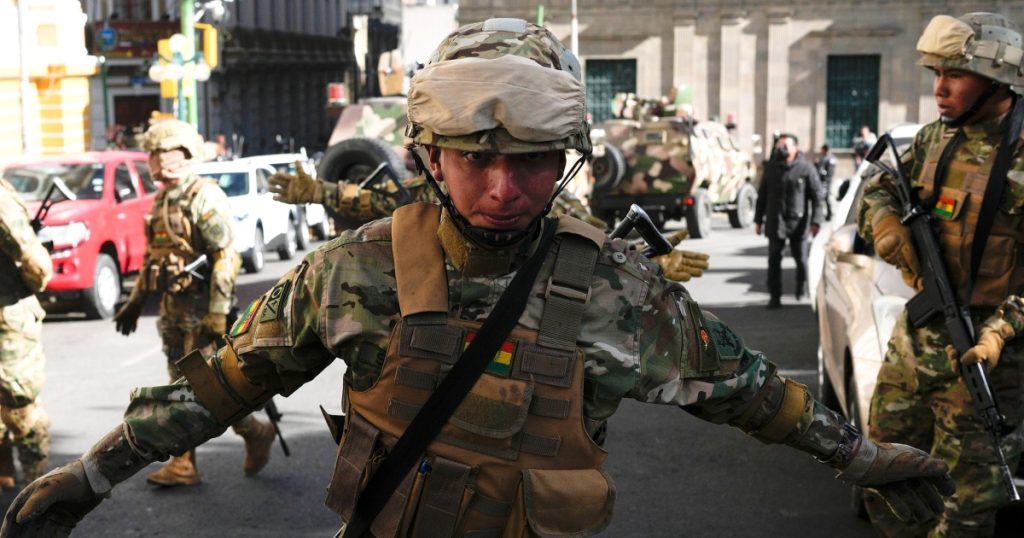On Wednesday, armored vehicles rammed into the doors of Bolivia’s government palace as government officials warned of a coup attempt. President Luis Arce expressed concern about “irregular” troop deployments in the capital and called for democracy to be respected. Former President Evo Morales denounced the movement of the military outside the palace, describing it as a coup in the making. The general commander of the Army confirmed the movement of uniformed officers and expressed frustration at what he called attacks on democracy.
María Nela Prada, the minister of the presidency, described the incident as an attempted coup d’etat, stating that the people were on alert to defend democracy. The situation was met with outrage from regional leaders, with the Organization of American States, neighboring Chilean President Gabriel Boric, Honduras’s leader, and former Bolivian leaders expressing concern. Bolivia, a country of 12 million people, has been experiencing escalating protests due to the economic decline and internal rift within the governing party.
Protests in Bolivia have been fueled by the economy’s dramatic decline, which has shifted from being one of the continent’s fastest-growing to one of its most crisis-stricken. The country has also been facing a high-profile rift within the governing party, the Movement for Socialism (MAS), as President Arce and former President Morales battle for the party’s future ahead of elections in 2025. Tensions have been rising in Bolivia as various factions vie for power, leading to increased political instability and demonstrations in the country.
The use of armored vehicles and military intervention at the government palace has sparked fears of a potential coup and raised concerns about the state of democracy in Bolivia. President Arce and other government officials have called for democracy to be upheld and have denounced the military’s actions as an affront to the country’s democratic institutions. The presence of tanks and uniformed officers in front of the government palace has escalated tensions in Bolivia and drawn international attention to the situation unfolding in the country.
As the situation in Bolivia continues to unfold, regional leaders and organizations have expressed solidarity with the Bolivian people and voiced their concerns about the potential threat to democracy in the country. The international community is closely monitoring the developments in Bolivia and calling for a peaceful resolution to the political crisis. The actions taken by the military and the government’s response to the situation will have far-reaching implications for Bolivia’s political future and its relationships with neighboring countries and the international community at large.
In the midst of escalating tensions and uncertainty, it is crucial for all parties involved to uphold democratic principles, respect the rule of law, and prioritize the well-being of the Bolivian people. The future of Bolivia’s political landscape hinges on the peaceful resolution of the current crisis and the ability of its leaders to come together to address the underlying issues contributing to the unrest. As the country navigates this challenging period, the international community stands ready to support the Bolivian people in their pursuit of stability, democracy, and prosperity.


